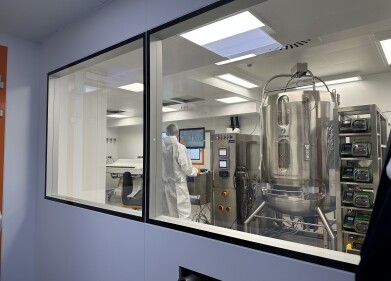Laboratory products
Nanoprecise Reagent Delivery for Ultra-efficient Assays
Oct 30 2007
MicroPlant's ability to consistently encapsulate highly accurate reagent quantities has a variety of applications in molecular biology processes, ranging from food pathogen detection to real time PCR and viral-load quantification. These molecular assays often involve expensive biological reagents and complex mixtures, which in turn calls for skilled technicians as extraordinary experimental precision is required to achieve reliable, reproducible results. Valuable time and money can often be wasted whenever an experimental procedure is erroneously or inaccurately performed. For clinical diagnostic assays, where false positives can have severe and expensive consequences, to improve assay reliability or simplicity is to increase customer assurance.
MicroPlant allows both large and small volumes of solutions to be accurately aliquoted into sub-nanolitre droplets, which are converted to polymer beads. Crucially, the bead size variation is frequently less than 1%, which means extremely low assay variability. The MicroPlant platform is fully scalable; able to produce batches as small as 1000 beads but also up to 15 million x 96 well plates annually. The microfluidic chips utilised in the Microplant are extremely cheap components, which can be easily cleaned to prevent contamination, or simply disposed of in batch-type processes. A distinctive advantage of the MicroPlant is its operating temperature flexibility. Each encapsulation procedure may be performed under optimum thermal conditions, ranging from +200°C to -30°C. However, in the context of molecular reagent encapsulation, temperatures of 5-37°C are most applicable.
Digital Edition
ILM 50.2 March 2025
March 2025
Chromatography Articles - Effects of small deviations in flow rate on GPC/SEC results Mass Spectrometry & Spectroscopy Articles - Waiting for the present to catch up to the future: A bette...
View all digital editions
Events
Mar 17 2025 Milan, Italy
Mar 18 2025 Beijing, China
Mar 20 2025 Brussels, Belgium
Mar 20 2025 Chandigarh, India
ACS National Meeting & Expo, Spring 2025
Mar 23 2025 San Diego, CA, USA



















